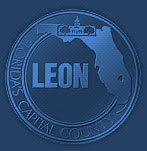- Demonstrating Performance & Results
- Promoting Transparency, Accountability & Accessibility
- Your Checkbook
- Lobbyist Registration
- County Contracts
- Clerk's Annual Audit
- How to Make a Public Records Request
- Fraud, Waste, and Abuse Hotline
- Summary of the Citizens Connect Button
- Contact the Commissioners
- Contact the County Administrator
- Contact the County Attorney
- County Documents
- County Code of Ethics
- Ethics 'Field Manual'
- News Releases / Advisories
- Public Notices
- Meeting Agendas
- Meeting Minutes
- More »
- Engaging Citizens & Partnering With Our Community
- Ensuring Livability & Sustainability
Home > Public Information Office
> Property Tax Reform Implementation
Property Tax Reform Implementation
|












 Amendment 1 Implementation
Amendment 1 Implementation





